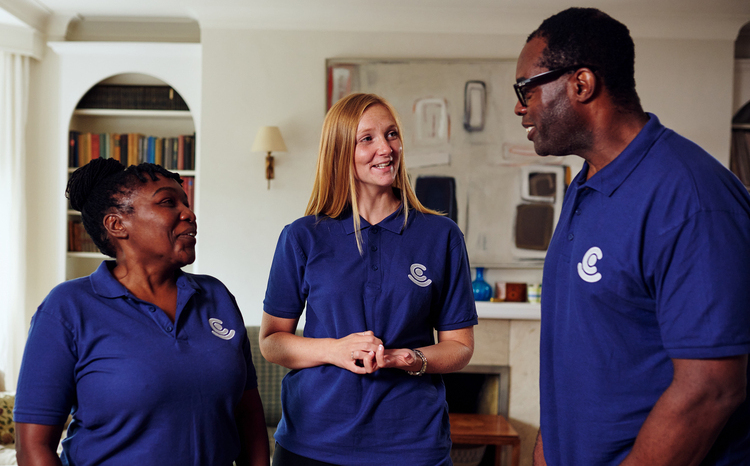Digital Health Coffee Time Briefing ☕
- 25 March 2024

Your morning summary of digital health news, information and events to know about if you want to be “in the know”.
???? News
✌ Llesiant Delta Wellbeing has been awarded the coveted TSA Quality Standards Framework (QSF) following a full audit carried out by TEC Quality on behalf of the TSA – the UK industry advisory body for Technology Enabled Care services. The company, which provides assistive technology and proactive monitoring to support older and vulnerable people to live more independently, was recognised for its culture of continuous improvement and innovation to deliver the best services possible.
???? Aware Custom Biometric Wearables announces the publication in the Journal of Neural Engineering of an independent study validating its groundbreaking Ear-EEG, a non-invasive in-ear solution for long-term electroencephalogram (EEG) brain monitoring. The Aware Hearable, enabled by Aware’s patented 3D ear scanner, offers a custom-fit earbud designed for the ambulatory recording of brain activities with unprecedented precision. Through a collaborative research study with other parties, Aware successfully demonstrated the capture of medical-grade in-ear EEG data from epilepsy patients combined with machine learning validation of seizure detection. The study confirms the Aware Hearable’s accuracy, performance, and comfort, marking a pivotal advancement in longitudinal, ambulatory brain monitoring technology.
???????? DREAMS is a new five-year Horizon Europe project looking to discover treatments for five rare neuromuscular disorders through a groundbreaking methodology combinining AI, stem cells and pharmacological screening. In a groundbreaking endeavour set to span five years, the DREAMS consortium is paving the way for a novel approach to treating neuromuscular diseases. This transformative project merges the power of AI, pluripotent stem cells, and cutting-edge pharmacological screening techniques to seek out therapeutic solutions for five debilitating conditions affecting more than 400 000 people worldwide.
???? The Lancet has published the first ever national study of NHS surgical video practices, using FOI requests. The researchers from Imperial College found that only a minority (16%) of acute NHS Trusts in England and Wales routinely record their surgical procedures, with the decision to video operations often left to the consultant surgeon, and less than half of trusts that responded (42%) had governance policies covering surgical video recording, use, and/or storage. The study found that practices and systems for recording and storage of video varied widely, as did consent and access policies and procedures. Because increased availability of surgical video is essential if patients and surgeons are to benefit from the ongoing digital transformation of surgery, researchers want NHS Trusts and Boards to prioritise and coordinate policies around consent, access and governance of surgical video, which they believe will increase recording and use of the technology.
???? XRP Healthcare is thrilled to announce a strategic partnership with Isansys Lifecare, a leading innovator in the digital healthcare technology sector, to enhance healthcare infrastructure and services across Uganda. This collaboration is set to transform patient care through the integration of advanced patient monitoring systems into the pharmacies, medical centres and hospitals they are set to acquire during this year throughout the country. Isansys Lifecare, has a successful partnership with the National Health Service (NHS) in the UK, and leading hospitals in Scandinavia and Europe. This collaboration has underscored Isansys’ capability to implement scalable and impactful patient monitoring solutions within complex healthcare systems, a precedent that promises significant advancements for Uganda’s healthcare landscape.
❓ Did you know that
New findings from the British Social Attitudes survey, published by the Nuffield Trust and The King’s Fund, show that public satisfaction with social care services has dropped to just 13 per cent, the lowest level ever recorded. The latest results show the proportion of people dissatisfied with social care remains at a historically high level. 57 per cent of respondents reported being either ‘quite dissatisfied’ or ‘very dissatisfied’ with social care services. The leading reason given for dissatisfaction was inadequate pay, working conditions and training for social care workers (57 per cent). This was closely followed by people not getting the social care they need (56 per cent), and there not being enough support for unpaid carers (49 per cent). Dissatisfaction was markedly higher among respondents who had used or had contact with social care services (for either themselves or someone else) in the past 12 months (64%) compared to those who had not (49%.).
???? What we’re reading
In 2019, the Conservatives made a series of health and care-related commitments in their election manifesto. They went on to win the election and form the government. Five years on, and with the current parliament coming to an end, The King’s Fund’s Jessica Holden looks at whether those commitments have been met.
???? Upcoming events
25 March, online – Next steps for clinical research in the UK
27 March, online – Next steps for obesity policy, prevention and care in England




